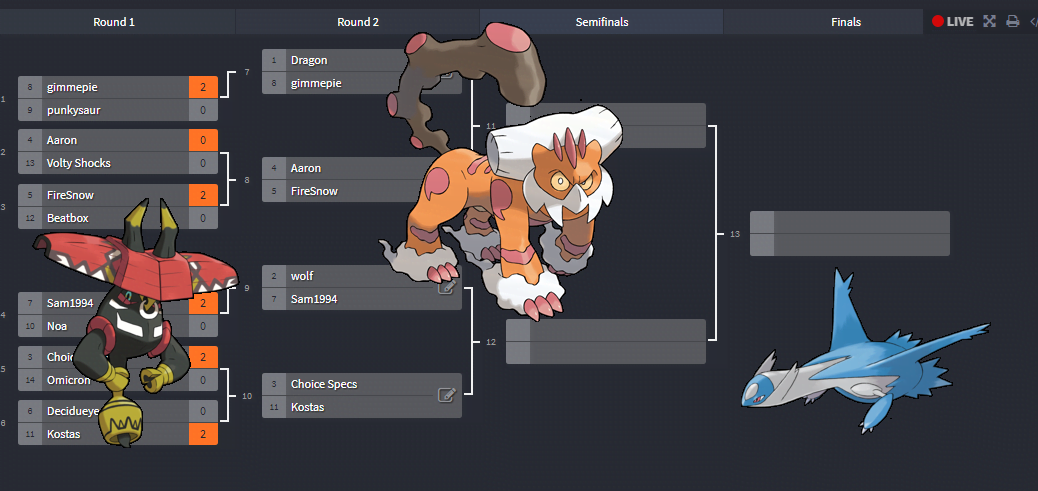PokéCommunity Tournament Guide
Interested in competing in tournaments on PokéCommunity but don’t know where to start? Worry not! This article will help you understand all of the basics about PokéCommunity’s tournaments!
Introduction
In most forms of competition, a tournament is usually the best way to determine which entrant possesses the most skill and knowledge of the game. Competitive Pokémon is no different – tournaments are a very good indicator of someone’s skill level.
You may have seen a few tournaments being hosted here on PokéCommunity, or you may have missed them. Regardless, our Competitive Pokémon section hosts a variety of tournaments on a regular basis. If you haven’t entered one yet, be sure to do so when the next one arrives – they are a great gateway into competitive battling.
This article will be divided into two sections: one for general tournament procedures and etiquette, and another for some tips on how to succeed.
Section 1 – General Tournament Procedures and Etiquette
This section discusses the general procedures and etiquette for tournament battling. It will not include any tips to help you succeed at tournaments, as that information will be included in the next section.
Signups
Occasionally, a tournament thread will be posted in the Competitive Pokémon subforum on PokéCommunity. To join, follow the instructions in the first post of a tournament thread – usually you can get in just by typing “in”.
However, you do need to pay attention to the deadline of signup period. Take note of the posts in the tournament thread – if you end up posting “in” after the host has started the tournament, then your chances of actually being able to participate are slim.
Please also take note of which server the tournament requires you to play on. Most of the time it will be on PokéCommunity’s Battle Server, but this may not be true for all tournaments.
Scheduling
Suppose you have successfully joined a tournament, but what now? Of course, you have to play other players to advance, but how does that work?
First, the tournament host will make a post notifying every entrant (the ones that have yet to be knocked out) of their matchup for the next round. Some may get a bye, but everyone will eventually have to play another person.
Once you know who your opponent is, go to their profile (if the tournament host did not link their profile in the first post, then you have to do some scrolling to find your opponent). Send them a Visitor Message (VM) and tell them your timezone and your available times. This is important! You want to send a VM (and not a PM) because the tournament host can check your activity in case you haven’t contacted your opponent yet. Furthermore, be sure to schedule a specific time and date, such as 2:30 PM instead of “between 2 and 3 PM” or “some time during the afternoon.”
If your opponent does not respond within a few days, it is also a good idea to post in the tournament thread to let the tournament host know of your activity. This way, you can end up getting an activity win in case your battle did not get completed by the deadline.
Day of the Match
On the day of the match, try to arrive a few minutes earlier than the arranged battle time. This is normal for most battlers and has been adopted as general etiquette. In case your opponent does not arrive, you should wait around thirty minutes – again as general etiquette.
After battling, save your replays and post them in the tournament thread. Usually one post per match is enough, so communicate with your opponent to confirm who will post the replays in the tournament thread. Of course, you are welcome to post in the tournament thread to discuss the match, but generally one set of replays per battle will suffice.
After the Match
If you won your match, then wait patiently for the next round to be posted. Depending on the tournament host, you may be allowed to play against your next round opponent early, though this situation is rare.
Suppose you ended up losing your battles and are now out of the tournament. Do not sulk, as there will always be more tournaments to come. Instead, try to think optimistically and look for ways to learn from your situation. It is a good idea to keep up with the tournament’s progress and see how other players play in order to get a better understanding of their playstyles.
